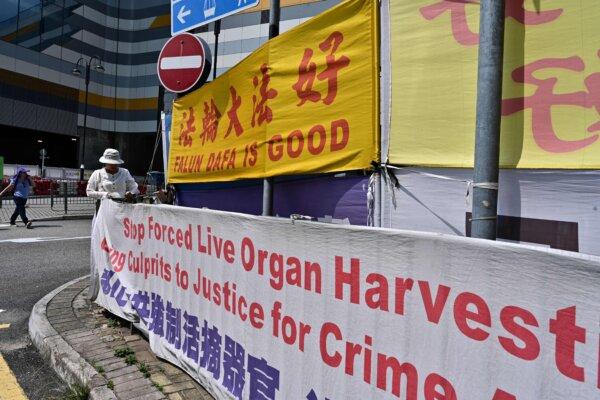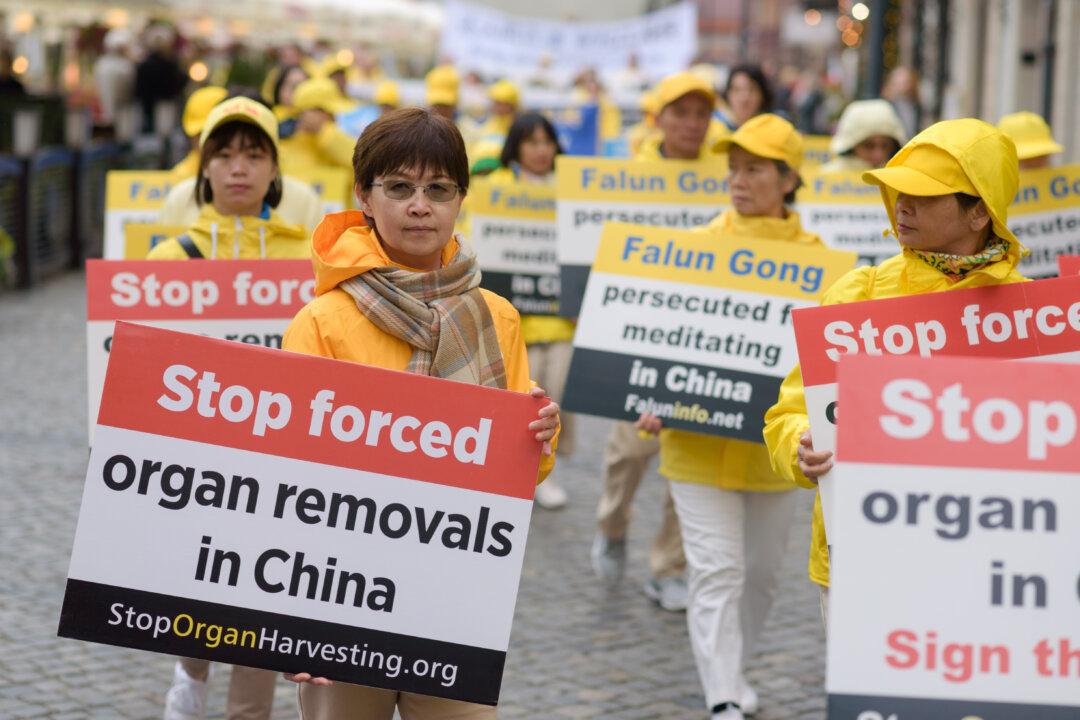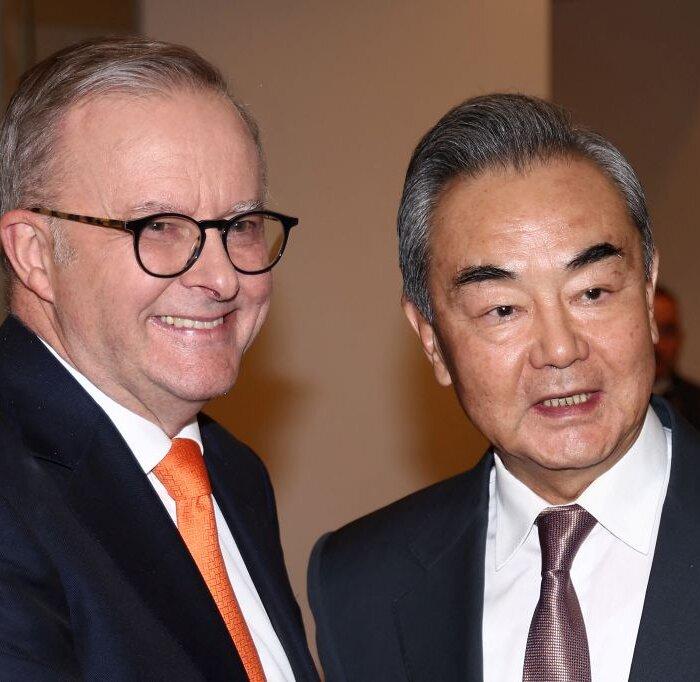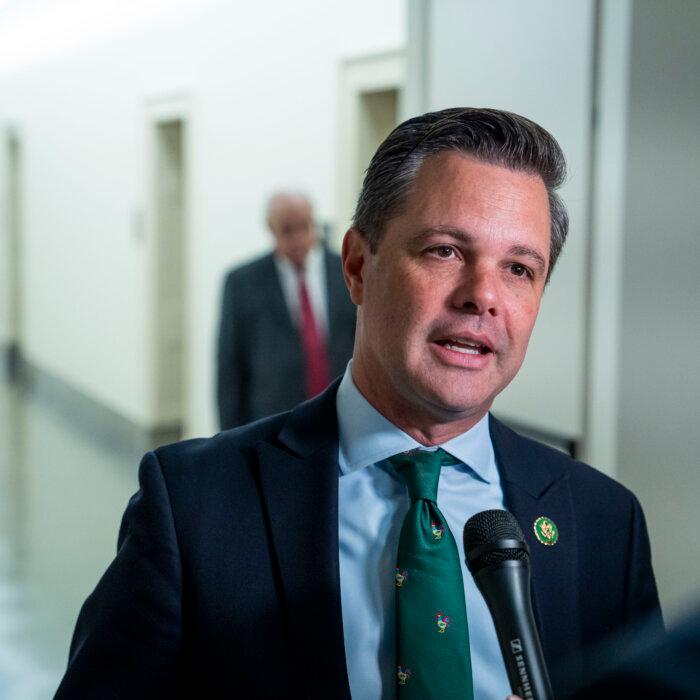The Communist Chinese Party’s (CCP) practice of organ harvesting is the subject of renewed interest from Australian politicians as new evidence emerges about the chilling practice.
A Senate Committee is examining a proposed law to make it compulsory for people entering Australia to respond to questions about overseas organ transplants.
Madeleine Bridgett, an international human rights barrister and a representative of the International Coalition to End Transplant Abuse in China (ETAC), revealed how quick and easy it was to source an organ from China.
Ms. Bridgett said that one of her colleagues, a professor, gave a presentation a few years ago in which she secured an organ from China via an online chat platform in just 10 minutes.
“She showed those WhatsApp messages in the presentation. She was able to get an organ arranged in 10 minutes,” the human rights barrister told the Foreign Affairs, Defence and Trade Legislation Committee.
“It is just not possible in any legal voluntary organ donation system for that to happen.”
Ms. Bridgett noted that the only way for organs to be available that quickly was the existence of “internment camps” in China, where people were killed on demand for their organs.
“We’re talking about prisoners in forced labour camps that I actually call ‘internment camps,’ not ‘forced labour camps,’ they are actually internment camps,” she said.
The ETAC representative also pointed to conclusive evidence from the China Tribunal, a non-governmental tribunal to inquire into forced organ harvesting in China. It found that practitioners of the spiritual mediation practice of Falun Gong, and Muslim ethnic Uyghurs, were the main targets of the CCP’s organ harvesting.
“It’s conclusive because the China tribunal found that forced organ harvesting has been committed for years throughout China on a significant scale. Falun Gong practitioners have been one—and probably the main—source of organ supply,” she said.
“In regard to the Uyghurs, the tribunal had evidence of medical testing on a scale that could allow them, amongst other users, to become an organ bank.
No Visibility of Overseas Transplant Operations
Ms. Bridgett pointed out that currently, Australia had no visibility on the extent of how many people were receiving organ transplants overseas.“There’s no transfer of medical information that comes from when someone has a transplant overseas,” she said. “Australia needs to know when someone’s coming back and they’ve had an organ transplant overseas.”
“And not just to know that they’ve had it, where they’ve had it, who’s done the operation and having some kind of clinical letter like a referral letter like you would do with any medical operation or intervention.”
In addition, ETAC chair and Macquarie University Distinguished Professor Wendy Rogers stated that overseas transplants were underreported in Australia.
Professor Rogers said there was a self-reporting survey (with a response rate of 43 percent) several years ago showing 540 registered Australian kidney transplant surgeries.
Meanwhile, an official register of kidney transplants recorded 279 overseas transplants from 1980 to 2018. However, 49 instances from the survey were not included in the official register, Professor Rogers added.
“We have to remember this was a voluntary survey,” she said.
“I think there is significant evidence that there is a cohort of patients coming back with organs from overseas that we do not know about.”
According to the professor, at least 10 percent of all transplants internationally take place on the black market, and the CCP is running an organ trafficking system at an industrial scale.

Laws Inadequate to Deal with Organ Trafficking
The ETAC also raised concerns about the slow progress in law reform to combat organ trafficking in Australia.Ms. Bridgett said that Australia does not have a federal offence for trafficking in human organs at present.
While the Criminal Code contains an offence for trafficking in persons for the removal of organs, Ms. Bridgett said Australia had never prosecuted a case.
“And that tells you that … either Australia is failing as a nation to prosecute those crimes. Or it’s probably that it’s really difficult to identify and then prosecute,” she said.
Pointing to the legislation changes adopted by countries such as Israel, the United States, and the United Kingdom in recent years, Ms. Bridgett said Australia was falling behind in the fight.
“Australia really needs to catch up to that in terms of our law of law reform. I actually am finding it really slow,” she said.
Ms. Bridgett gave the example that ETAC gave some recommendations to the Australian government in 2018 to amend the Criminal Code to include offences of trafficking of human organs.







